It's Time to Recognize 'Mr. Mom' As a Feminist Classic
Producer Lauren Shuler Donner joins me as I offer up a reconsideration of the 1983 comedy blockbuster
Mr. Mom was released in 1983 — just over four decades ago now — and was immediately struck by negative reviews that might have felled lesser films. But its story, about a suddenly unemployed father who takes up domestic duties so his wife can go back to work, struck a nerve with American audiences. A slow rollout, engineered by the studio to bury the film, actually played to its advantage — building positive word-of-mouth buzz that no longer exists in the streaming age — leading to a smash comedy hit that grossed $200 million at the box office (adjusted for inflation).
It’s easy to see why Mr. Mom resonated at the time. Layoffs in traditionally male U.S. workplaces, especially the auto industry, had landed innumerable men on their living room couches - a stark contrast to the seventies when a total of, I shit you not, six men reported being stay-at-home dads in America. Six. This resulted in many of their wives having to head into the workplace themselves to help make ends meet, but it also meant these men were forced to tackle domestic responsibilities previously foreign to them.
You know, like their kids.
When I grilled people about their recollections of Mr. Mom, few had seen it in decades. Most women described their memory of it as a reductive, sometimes even bad-taste comedy about a man fumbling through all the aspects of domestic life a responsible adult should’ve been good at anyway – operating a washing machine, making spaghetti, school drop-offs. There was an overwhelming sense that it was a comedy that, in some way or another, made fun of stay-at-home moms. Dated was a word that came up often.
Needless to say, feminist was the last word any of them used to describe it.
The truth is, I would’ve agreed with them before my wife and I sat down together to revisit Mr. Mom a few months ago. We didn’t do so for any reason other than nostalgia and general affection for its stars Michael Keaton and Teri Garr. But halfway through it, I paused the film, turned to my wife — also a screenwriter — and asked, “Holy shit, is this as pro-woman as I think it is?”
The answer is: yes, yes it is.
Now, enjoy this incredibly sexist trailer for the film:
Before we get into the why of it, let’s talk about Mr. Mom’s origins. As luck would have it, an old friend used to work for the film’s legendary producer, Lauren Shuler Donner and made an introduction. Despite a recent bout of bronchitis, she was generous enough to hop on Zoom with me to discuss the film that put her and its screenwriter, John Hughes, on the map.
Hughes, who went on to help define Hollywood in the eighties with films such as The Breakfast Club, Ferris Bueller’s Day Off, and the National Lampoon’s Vacation trilogy, clearly enjoys an incredibly dear spot in Lauren’s heart. She visibly changed whenever the late filmmaker’s name came up and grew defensive of his work when the conversation shifted to how a fellow producer mangled Hughes’ work on Mr. Mom.
“We connected on a very personal level,” she told me, including both of them being from the Midwest. He was from Chicago, she from Cleveland. The family in Mr. Mom would eventually be located in between in Detroit, where I’m from.
“One day, his wife Nancy was away and he was left in charge of the boys,” she continued. “I have a feeling that they got married right after either high school or college. I think he grew up with three sisters. Basically, I think the man never had taken care of himself. Never been in a grocery store. Certainly never operated a washing machine or anything like that. So, he was telling me about taking care of the boys and trying to cook - and it was hilarious. At a certain point, John said, ‘You know, I have about eighty pages in the drawer. It’s this movie called MR. MOM. Do you want to read it?’”
Lauren had two credits to her name by that point, as an associate producer on Thank God It’s Friday (1978) and as a producer on a television film written and directed by the late Joel Schumacher called Amateur Night at the Dixie Bar and Grill (1978). Hughes had written National Lampoon’s Class Reunion (1982), which, until our conversation, I had no idea even existed. Mr. Mom’s success essentially made both of their careers and even scored Hughes a three-picture deal with Universal – which is how we got his directorial debut Sixteen Candles (1984).
Lauren repeatedly centered our Mr. Mom conversation around Hughes, even though his original script didn’t make it to the screen unscathed. He wrote at a phenomenal pace, according to her (and many other people who have worked with him), something she attributes to his years working in advertising - which is the career Teri Garr’s character moves into in Mr. Mom. She even shared a wonderful anecdote about the filmmaker receiving notes in a meeting. He stepped out of the office, to where Lauren’s assistant worked, asked her to please get up from her desk so he could take her place at the Selectric typewriter, then banged out all the discussed changes right then and there – “And they were damn good,” she added.
Development of Mr. Mom took an infuriating turn when Lauren’s partner on the film, Aaron Spelling, grew impatient with Hughes’ refusal to move to Los Angeles to work with him on the script – something Lauren insisted to me was unnecessary. “First of all, John never slept,” she said. “I mean, honest to God, he would fax you pages at, like, 3:00 in the morning. So, it wasn't like he wasn't available. He was there practically 24/7. He was more available than if somebody was in the actual room.”
When Lauren left town to make Ladyhawke (1985), Spelling fired Hughes behind her back and brought in two television writers from his series “Dynasty” to replace him. She doesn’t blame the writers for taking the job. She even sounds sympathetic because they had to follow Hughes - and no writer in their right mind would want to do that. It’s Spelling she resents.
The initial reception to Mr. Mom four decades ago was not what the filmmakers hoped for, as I mentioned earlier. Lauren Shuler Donner remembers critics dueling over who could say the worst things about the film. Roger Ebert lamented, “People have been living through the basic idea for Mr. Mom for years. It's too bad this movie doesn't feel more like their lives and less like the pilot for a TV sitcom.”
Sure, okay — much of the humor is indeed broader and Stan Dragoti’s direction leans that direction, too — but Ebert was dead wrong about the film’s emotional truths as I’ll explain in a moment.
Universal was equally perplexed by Mr. Mom, choosing to prioritize the Michael Douglas film The Star Chamber (1983) over it. “They didn't know what they had,” Lauren told me. The studio decided to roll Mr. Mom out regionally rather than give it any kind of splashy release, assuming it was dead on arrival. But after two weeks in theaters, The Star Chamber crashed and burned…and then, Mr. Mom exploded.
When I asked Lauren how she felt at the time about Mr. Mom, she had this to say:
“Look, it wasn't John's script and that broke my heart. It absolutely broke my heart. But it had our bones. Even though the script was different, it still had enough of the essence that. You know, it was — it is — a good movie. It’s fun. There’s a lot to say.”
At this point, we began to discuss the film’s social relevance, both in the eighties and, perhaps, today. I wanted to understand how conscious she and Hughes and the rest of their team were about — for example — the film’s feminist message (which, again, I will explain more about in a moment, don’t worry).
“It wasn't that I had to be conscious of it because I just was,” she said. “I was always feminist and always sort of staking out my own path regardless of what anybody thought or said, so that was just me.”
The subject, however, didn’t seem to interest her as much as the process of developing and producing the film. This isn’t a unique experience for me, as I feel many filmmakers grow bored about talking about the meanings of films themselves, what this or that meant, and prefer to dwell more on their memories — and process — of making them.
Mr. Mom’s legacy was also not an area Lauren seemed especially interested in reflecting on beyond pointing out that the film struck such a chord within American culture that the term “Mr. Mom” entered English vernacular as a result. I hesitated when I heard this, but research confirms she wasn’t being remotely hyperbolic. The Oxford English Dictionary hilariously attributes its first use to a 1984 New York Times article, completely overlooking the hit film that originated the term the year before.
As for why Mr. Mom hasn’t stood the test of time as well as other iconic films of the era, Lauren suggested that might have more to do with how the zeitgeist dramatically changed immediately after its release. Part of that was inadvertently her doing — and Hughes’ — as the rise of the teenage film and the “Brat Pack”, such as The Breakfast Club and St. Elmo’s Fire (1985), which she produced, replaced more adult comedy fare at the box office.
Interestingly, Lauren closed our conversation by imploring that I spend less time discussing my academic interests in Mr. Mom and more time talking about why I love it so much. She appreciated my passion much more than my efforts to dissect a forty-year-old film. Your wish is my command, Lauren.
My memories of the early eighties are sketchy at best. I was very young, but I think the problem is deeper than that. I recollect emotions much more than specifics about any of it, but of course, those emotions are colored by any number of outside factors.
What I do recall with some certainty about my parents is that my father went to work, came home, ate a meal my mother made for him, mowed the lawn on the weekend in between taking us to soccer matches, and then did it all over again with a tired, grumbling resentment. We were made to feel by him and my mother that everything we had was because of him. What I saw on TV certainly didn’t argue against this notion, as patres familias came home from work on the boob tube and were similarly celebrated for putting the food on the plate.
Except they didn’t actually put the food on the plate, did they?
They put money in a bank account, and then, off-screen, wives orchestrated meal plans, went to the grocery store where they would spend an hour or more buying distinct ingredients, then spent every afternoon of the week assembling those ingredients into dinners for their large nuclear families. They would repeat this in the morning, making breakfasts and lunches for their husbands and kids to take to work and school. Somewhere in there, they would collapse in front of a soap opera and shove some food of their own in their mouths. More than a few would drink or pop some “happy pills” while doing it. Gossiping on the phone was their chief form of communication with the external world.
This wasn’t lost on me as a child despite how everyone around me — including family, neighbors, and my pastor — tried to convince me who the head of my family was.
But the real head of my family worked far harder than my father did, I was never confused about that.
Which is why I think revisiting Mr. Mom shocked me so much. Like so many others I know, I had an idea of what the film was about. But that idea was informed by years of resentment and snark I had heard build up around the term “Mr. Mom” and, in particular, the idea of the bumbling husband incapable of doing any of the basic tasks required of adult men in the 21st century.
What I’m trying to say is: the kind of husband you think Michael Keaton plays in Mr. Mom is everything that’s wrong with the patriarchy.
But the kind he actually plays is decent, loving, and, when push comes to shove, far more interested in his wife’s happiness than his own success/masculinity.
Through research and by all accounts I’ve heard — including Lauren Shuler Donner’s — Mr. Mom is very likely the first Hollywood feature to realistically depict the role of homemaker and, more specifically, stay-at-home mother. Television sitcoms had played this for gags for years, but rarely with aching accuracy meant to engender admiration and respect as Mr. Mom does.
There had also been feature films that centered men as fish-out-of-water fathers — such as Kramer vs. Kramer (1979) — but the actual, all-consuming act of managing a house, children, and a physically absent husband who expected a hot meal waiting for him on the table when he returned home from work every night? In some bizarre twist of fate, the (very likely) first film to explore that specific burden is all about…a man.
Okay, sure, that doesn’t sound very feminist. Maybe you would call it sexist, too. Certainly, Hollywood was just that in the eighties, when there were almost no comedies produced that starred women in anything other than supporting roles. Yes, you can point at 9 to 5 (1980) here — and Lauren did, as well — but it exists as a rarity in a genre almost exclusively dominated by male “Saturday Night Live” and sitcom alumni.
But — hear me out here — what if the only way to speak honestly about stay-at-home moms was to essentially smuggle their story into a broad male-led comedy?
Because I think that’s what happened, whether Lauren and John Hughes understood what they were doing or not at the time. What probably began as a humorous premise for a film evolved into something much, much more.
If you enjoyed this particular article, these other t
In Mr. Mom, Michael Keaton’s character Jack Butler is laid off from his auto factory job. With little time wasted on the existential dilemma this produces for him as a man with a wife and three young children to provide for, his wife Caroline — college-educated (sweatshirts suggest the pair of them met at University of Michigan before she traded using her education to become a full-time childcare provider) — gets a job at an advertising firm.
While on this job, Caroline’s previous experience as a stay-at-home mom provides her with a special understanding of what moms want to hear when buying tuna — experience others at the company smugly mock — but, voila, she earns her first promotion. Sure, it’s a bit simplistic when it comes to career tracks, but when you consider how easily white men have been failing upward for generations, not as crazy as it sounds.
Meanwhile, Jack confronts the improbability of managing a household on his own. I know this rubs some people the wrong way today, but I still recall my mother, who was Australian, leaving for a month to visit her family when I was a teenager. My parents spent weeks preparing for this, going through everything my father had to manage, and even then she had to write it all out for him so he didn’t miss any payments and the kids ended up wherever they were supposed to when it came to school, sports, catechism classes, birthday parties, and so on.
I repeat, this was just to manage for four weeks.
Four.
Weeks.
The idea of Keaton’s character fumbling when put in charge of all of this more or less overnight is accurate for the era (and still far more accurate in 2023 than most of us would like). Blame the patriarchy for how history did this to our society, that’s fair, but Mr. Mom wants to show you a way out of that system of thinking, believe it or not.
Rewatching the film, I repeatedly found myself traveling back in time to my father’s month of domestic ineptitude. But the thing is, I don’t think he ever learned anything from that experience. If anything, I think he probably resented it happening to him.
Not Jack Butler.
Jack dives right in without complaint, though this shouldn’t suggest he’s happy about it. Or that there isn’t trepidation. Everything intimidates him, especially how other mothers — sorry, stay-at-home parents — pitying or outright mockingly view him as an idiot. He drives the car the wrong way into the school drop-off/pick-up zone, for example. His kids know better than him about some things. Even the repair people who enter his home see a lost schmuck.
Me, I saw something else.
I saw any woman of the same period forced into the same situation by society’s expectations of her as a homemaker. With no other choice, Jack learns on his feet - and he gets good at it. He forges relationships with the other moms. While he was never a bad dad, he begins to truly excel at that, too. And when the crushing monotony of it begins to break him…
…he lets himself go, he stops shaving and puts on weight, he becomes addicted to soap operas, he drinks, he even (not quite) considers an affair. And on the other side of the journey is ridiculous pride.
Most importantly, Jack never turns on his wife through it all.
In fact, for all his almost entirely unspoken insecurity about his “emasculation” —there’s a hilarious scene where he tries and fails to portray himself as a macho home renovator to Caroline’s (clearly interested) boss — he only supports her in her professional endeavors.
Jack makes Caroline’s career — and their family’s life — possible by doing every single thing she once did to make the same possible when he was employed. And when faced with the need to subvert his own identity — and masculinity — to help with her career advancement, he does exactly that in what I consider one of the film’s most daring moments.
Caroline’s obnoxious boss Ron Richardson, played by the late Martin Mull, stages a yearly company party at his mansion. This involves a series of Olympic-style sporting competitions. Jack agrees to participate when his manhood is challenged, and quickly decimates Ron in turn. Other employees try to get Jack to back off, making it clear they must let the boss win as they always have or risk losing their jobs. But Jack, acting out at this point against what’s happened to his life, pushes on despite what this might mean for his wife.
As Vangelis’ “Chariots of Fire” plays, Jack and Ron approach the finish line. Jack is going to win. Caroline doesn’t seem remotely shocked by this, maybe expecting nothing less from her competitive husband. But then, he glances her way.
His face changes, the hint of a smile.
And he takes a comical fall, tripping on thin air.
A moment later, Ron is lifted up by his employees, bragging about his victory, a “real man”. But Caroline’s career advancement is ensured.
You can watch the scene in question here:
I should add, this is far from the only scene that puts women first in the social narrative. Mr. Mom also features one of the most startling and hilarious reactions to a sexually aggressive boss I’ve seen on film in the eighties.
Ron slips into Caroline’s hotel room to seduce her. She tells him to get out. He begins to try to coax her into considering it when — kapow! — Caroline punches him out. There is no middle ground. No is no.
In so many ways, this punch is an act of wish fulfillment for women in the audience, most of whom would have to wait decades to have such sexual misconduct taken remotely seriously in the workplace. It’s easy to imagine women whooping and punching the air at this scene forty years ago, all of them knowing full well such a decision would doom their careers.
When I asked Lauren about this scene, she said it was a result of smart editing and the need to make the laugh it gets work better. This might be the case — in fact, much of Mr. Mom might be similar cinematic accidents — but intention does not have to match effect. The result has symbolic value, and the symbolic value — the effect — of Jack’s constant deference to his wife’s needs and Caroline’s brutal intolerance for inappropriate male bosses is spectacularly feminist.
Mr. Mom isn’t a film about how hard it was for men to be homemakers.
It’s a film about how hard it was for women to be homemakers - and still is for anyone who chooses to be.
It’s a film that says what my mother did was respectable (despite how much I wish more of her dreams had come true, as she did, too). That it was an accomplishment worthy of celebration. That it was she – not my father – who got us to school every day…and made sure the bills were paid on time…and washed and folded our clothes…and took us to the doctor’s…and, of course, put the food on the table.
It’s a film that wants you to know that women, whether running a household or crushing it on a tuna fish ad campaign, are rock stars. Forty years later, it remains infuriatingly relevant given the culture war still raging in America.
If art is a mirror that unflinchingly shows us who and what we are as a society, Mr. Mom somehow manages to both do that and show us who we could still become. It deserves to be recognized as such.
If this article added anything to your life but you’re not up for a paid subscription, consider buying me a “coffee” so I can keep as much of this newsletter free as possible for the dreamers who couldn’t afford it otherwise.
If you enjoyed this particular article, these other three might also prove of interest to you:




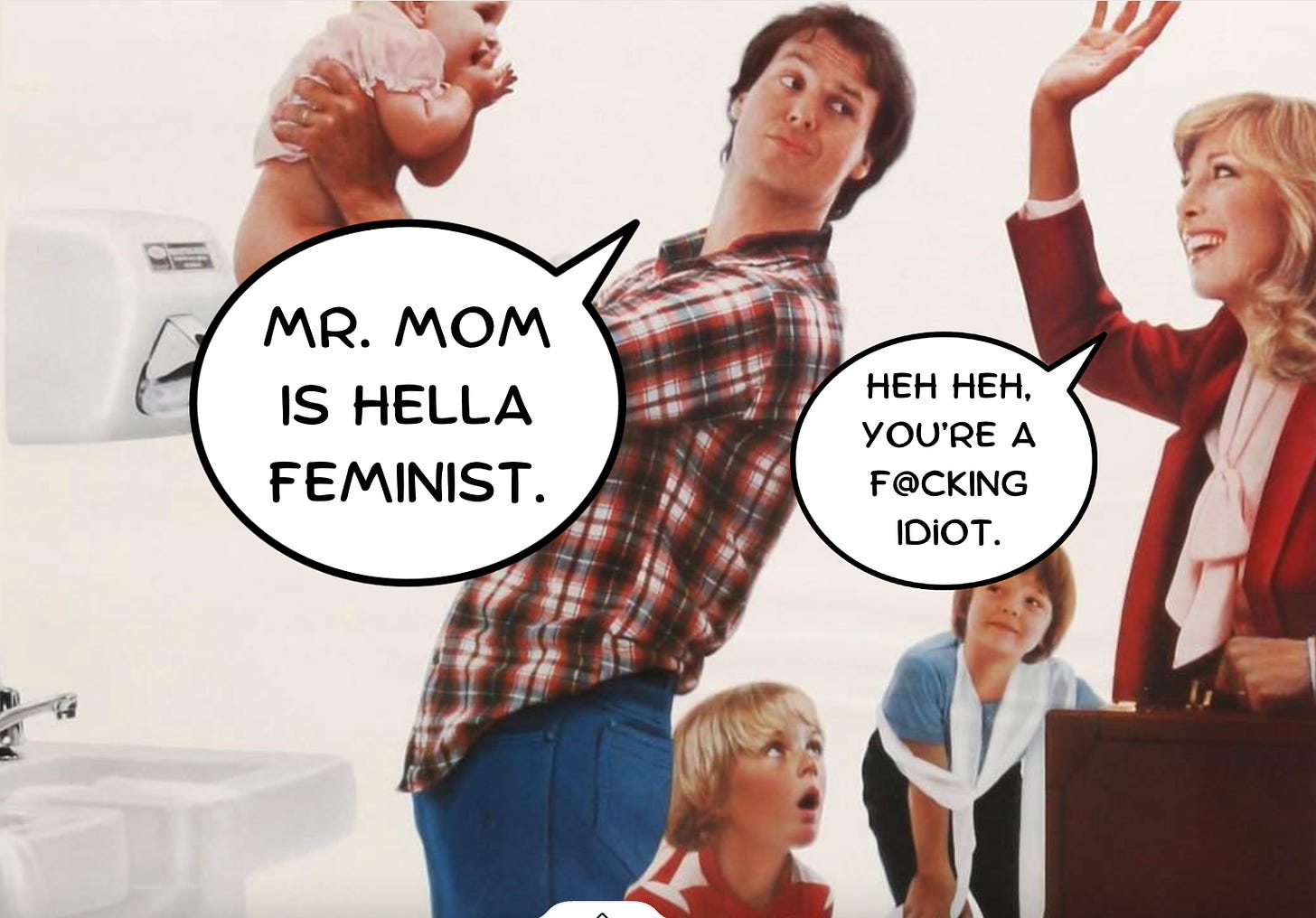
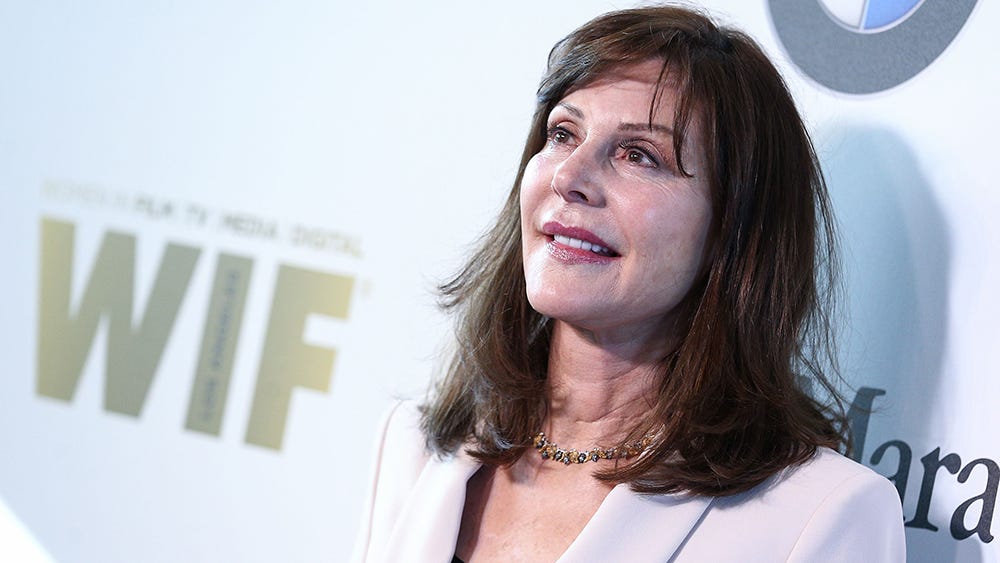
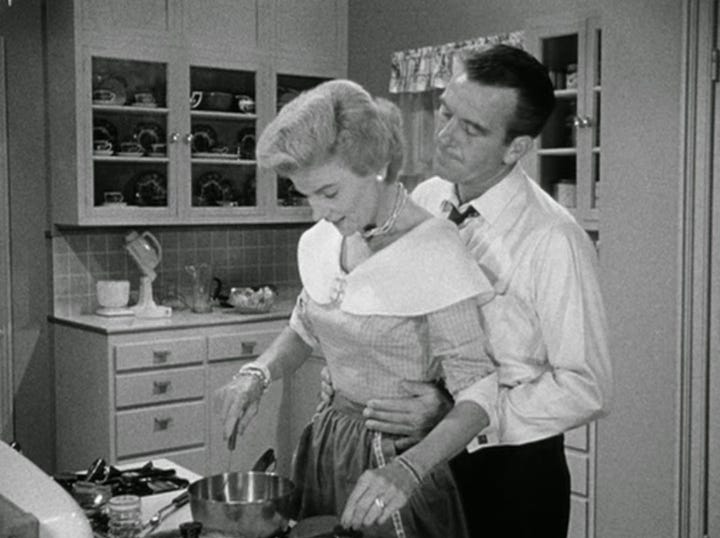
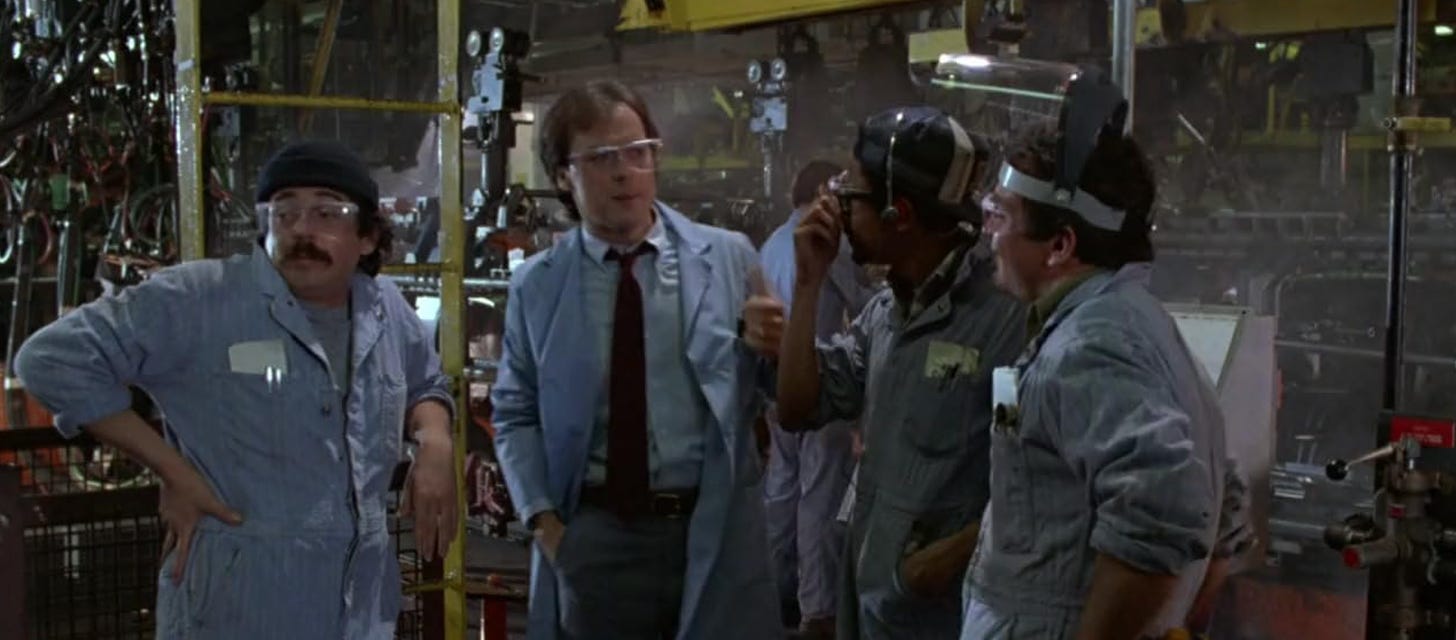
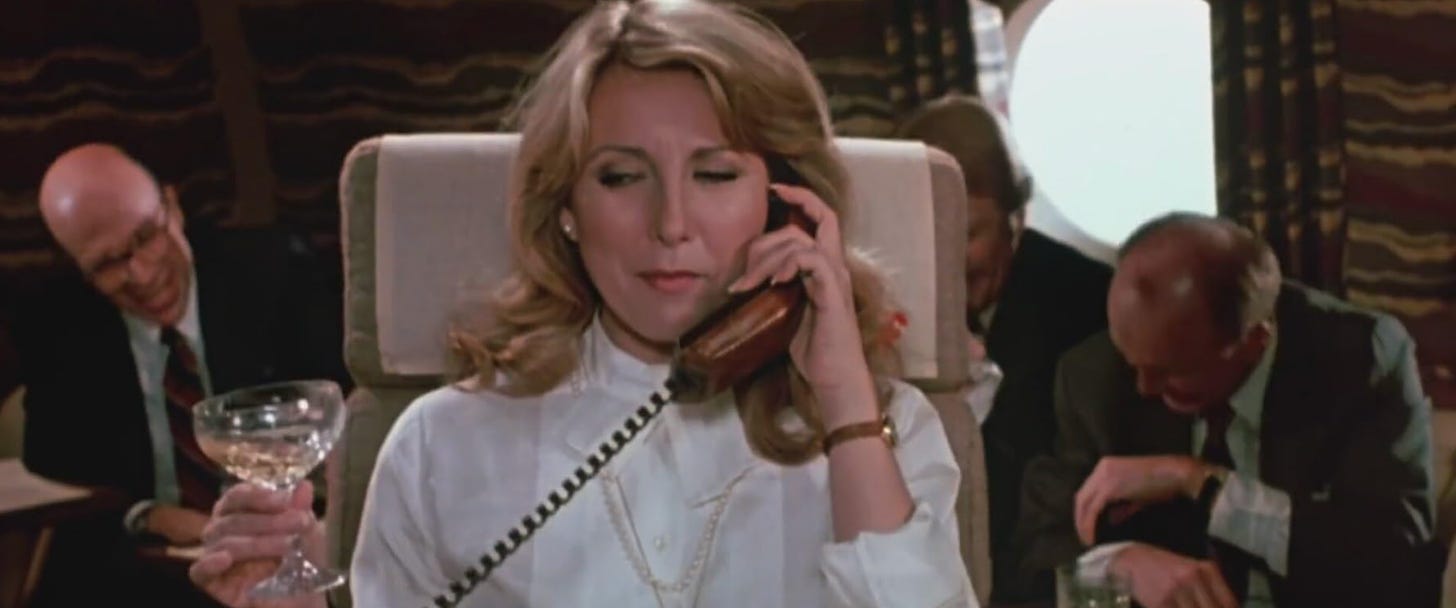
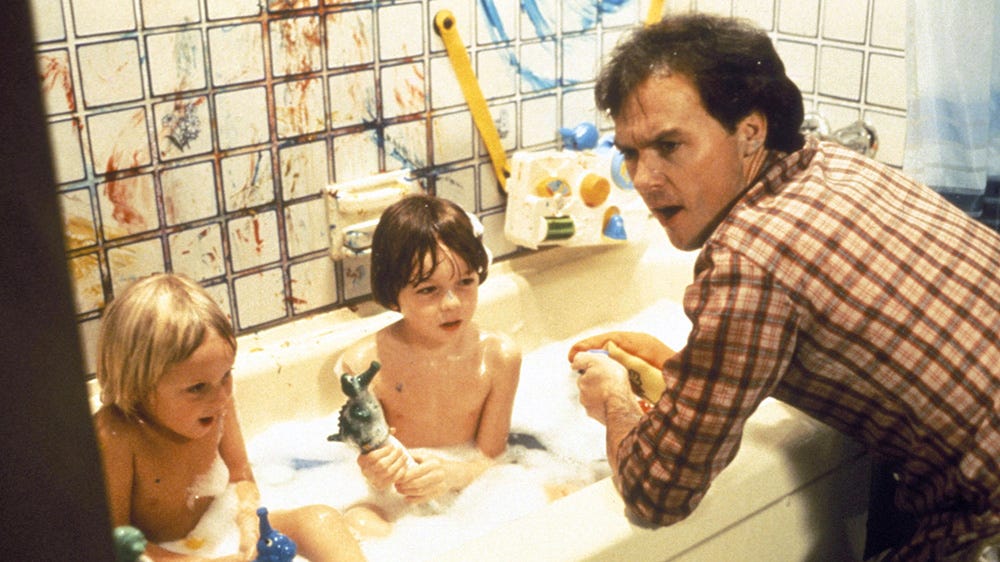
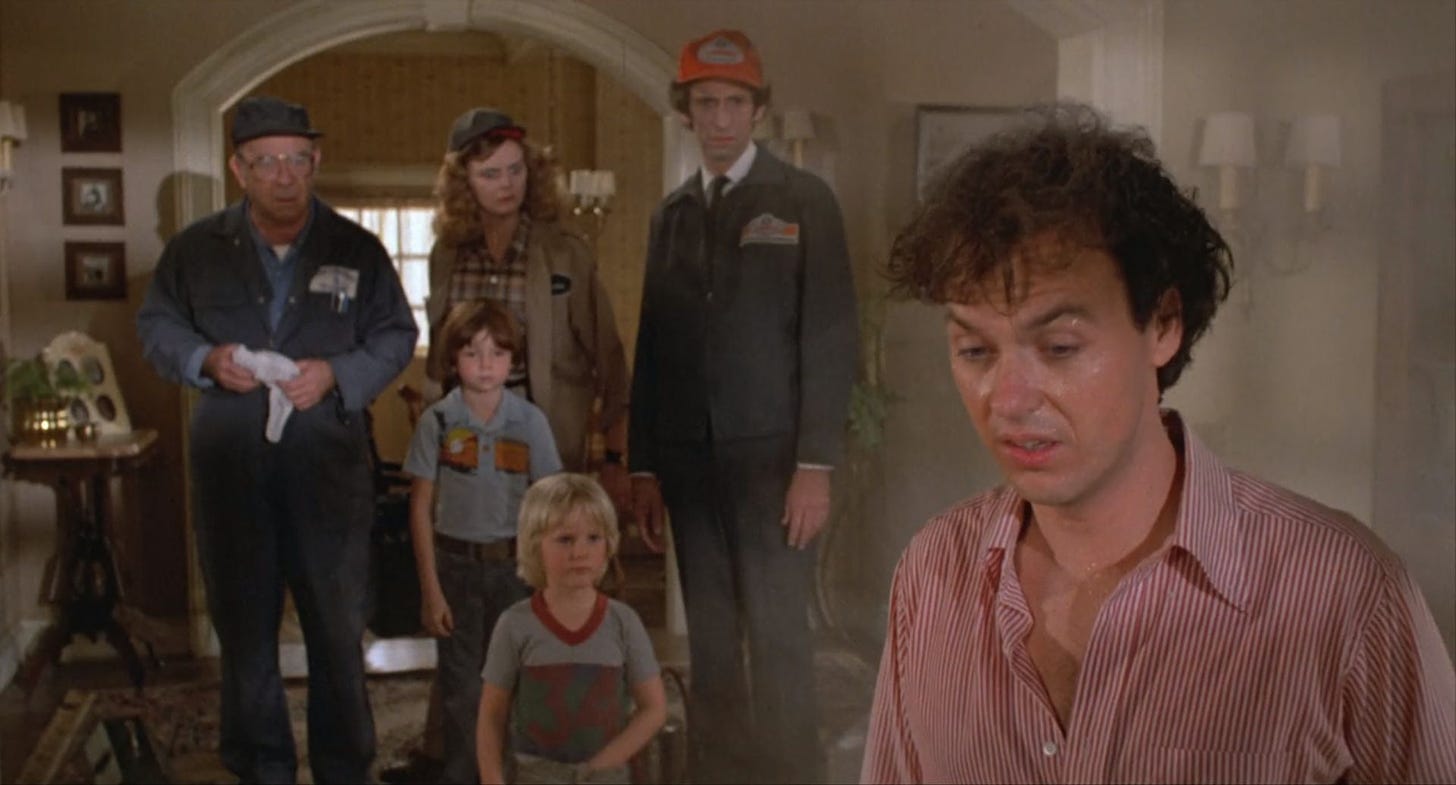
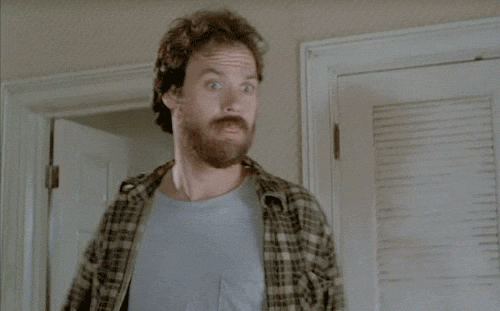
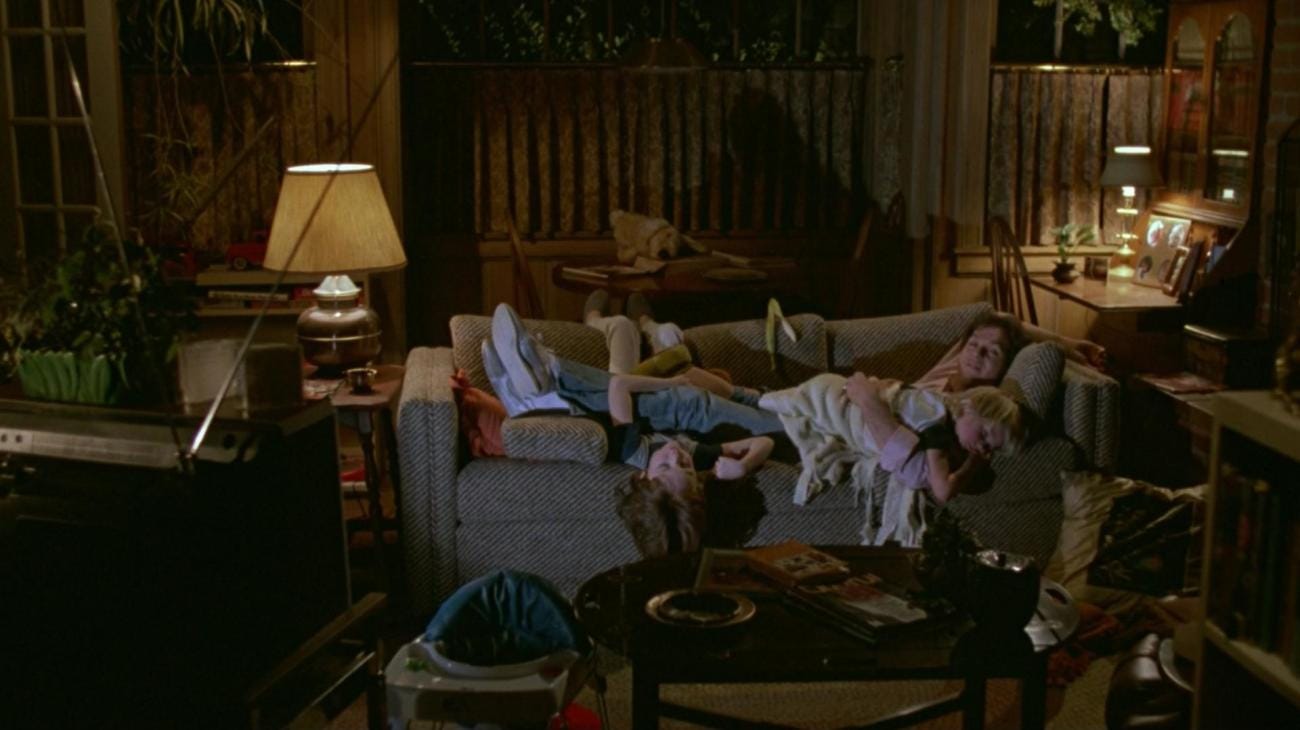
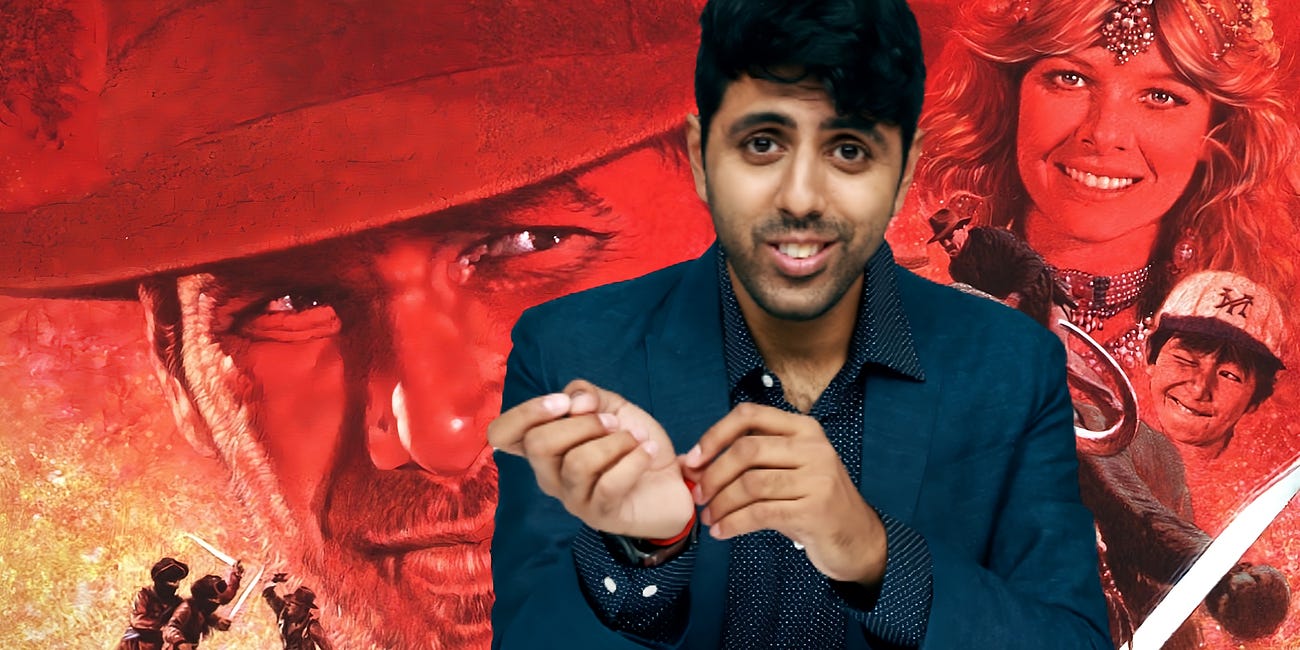


Great summary of an underrated film. My conservative parents got this for my family on VHS in the mid 80s and I’ll bet I’ve seen it at least 50 times, I’m sure it has unconsciously influenced my attitudes on gender roles. To be shown new details & angles of a film I’ve seen that many times through your writing is wonderful, kudos to you, sir.
To this day, any time another guy is showing me any home renovations or remodeling he’s working on, mostly for my own entertainment I can’t help but ask “You gonna make it all 220?”
I always felt much the same about Mr Mom (and similarly about Don’t Tell Mom the Babysitters Dead). As a father of four that has spent almost half of the last 20 years as the stay at home parent, for one reason another, I’ve faced sexism from both sides.
The recognition both that it’s not easy, and that men can (and should) do it too, that’s something feminist, I think. I’m incredibly proud of my wife’s career and proud of my work raising our children and taking care of our home.